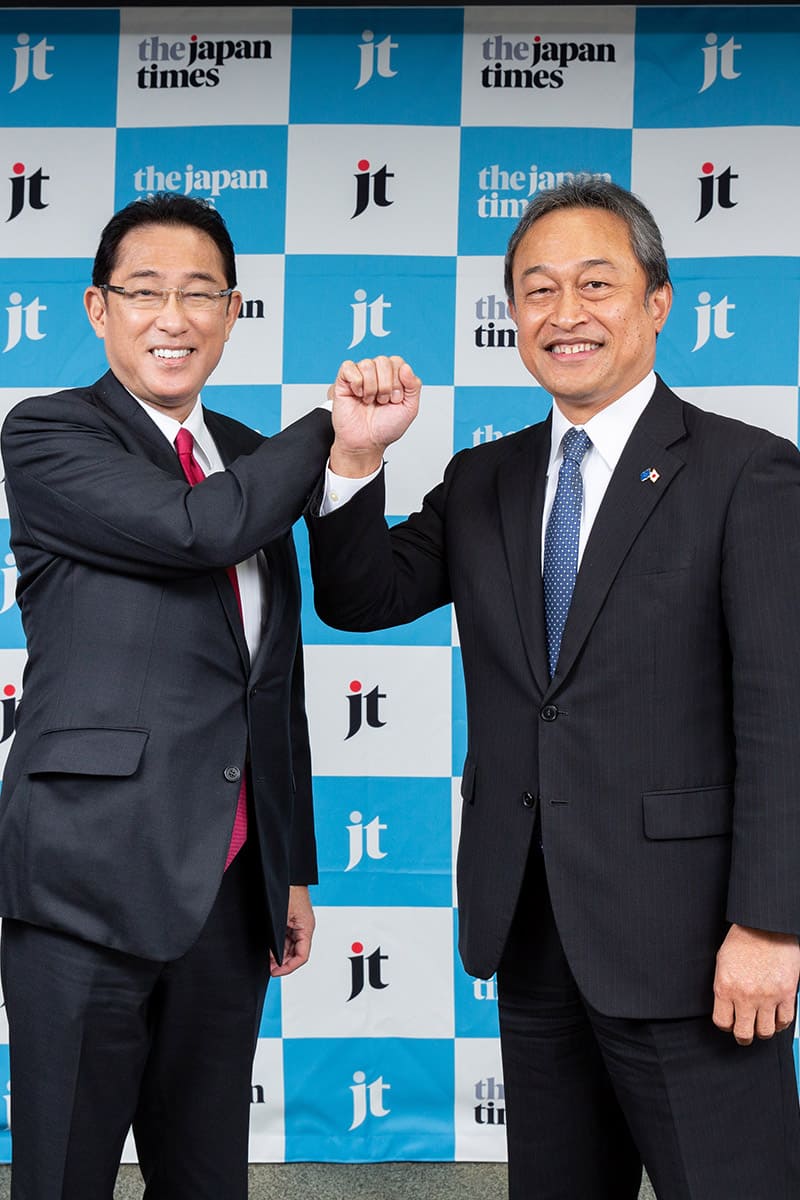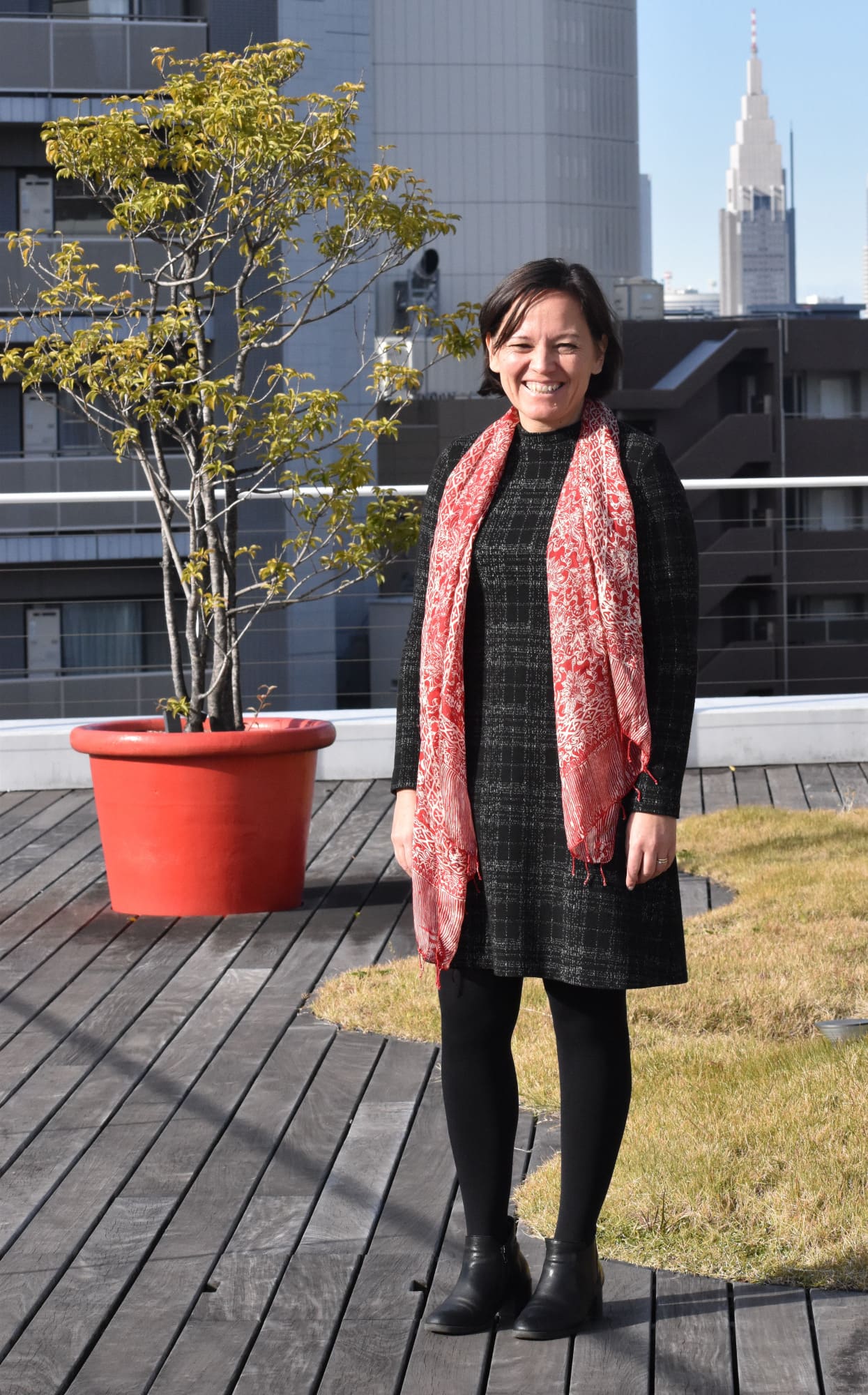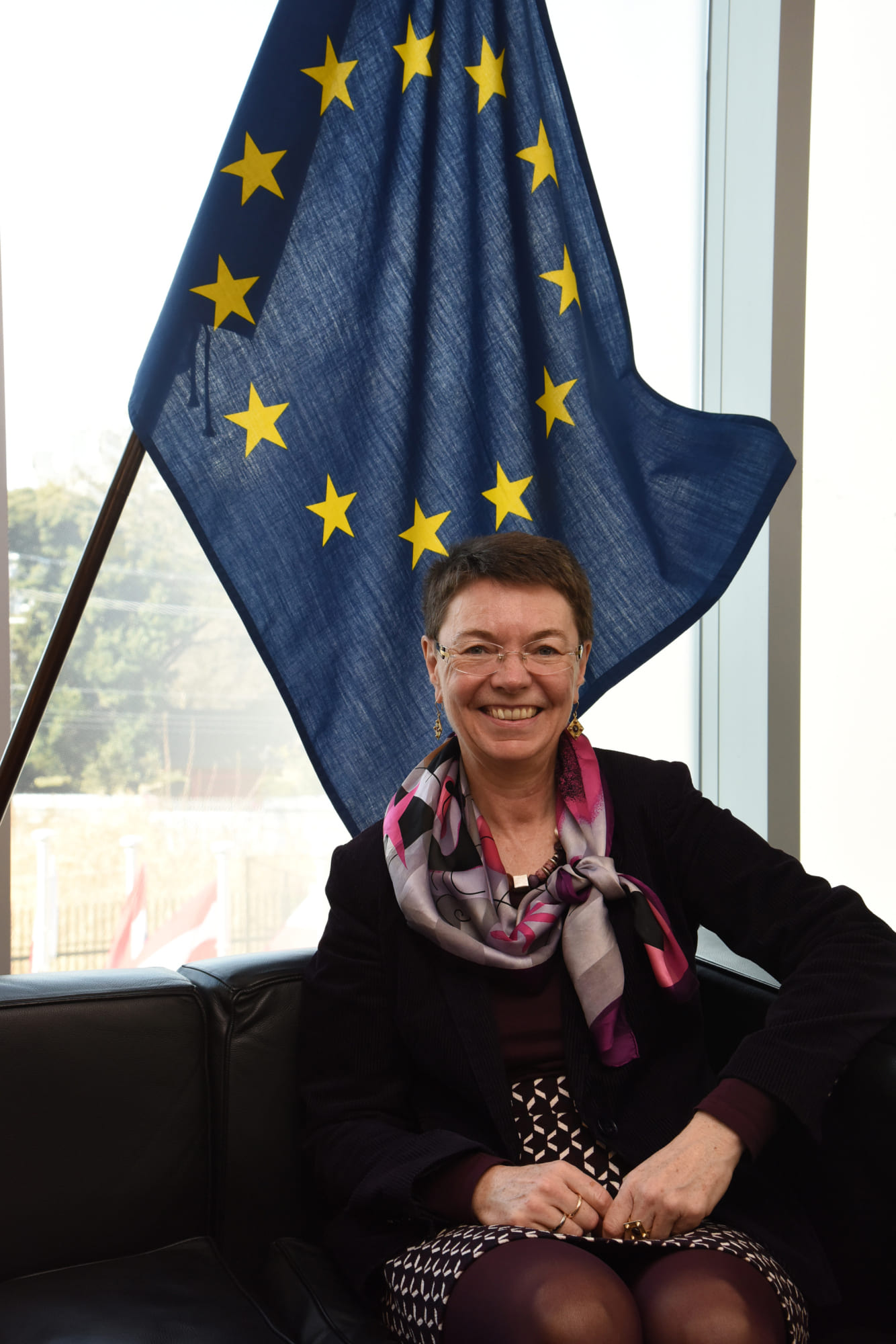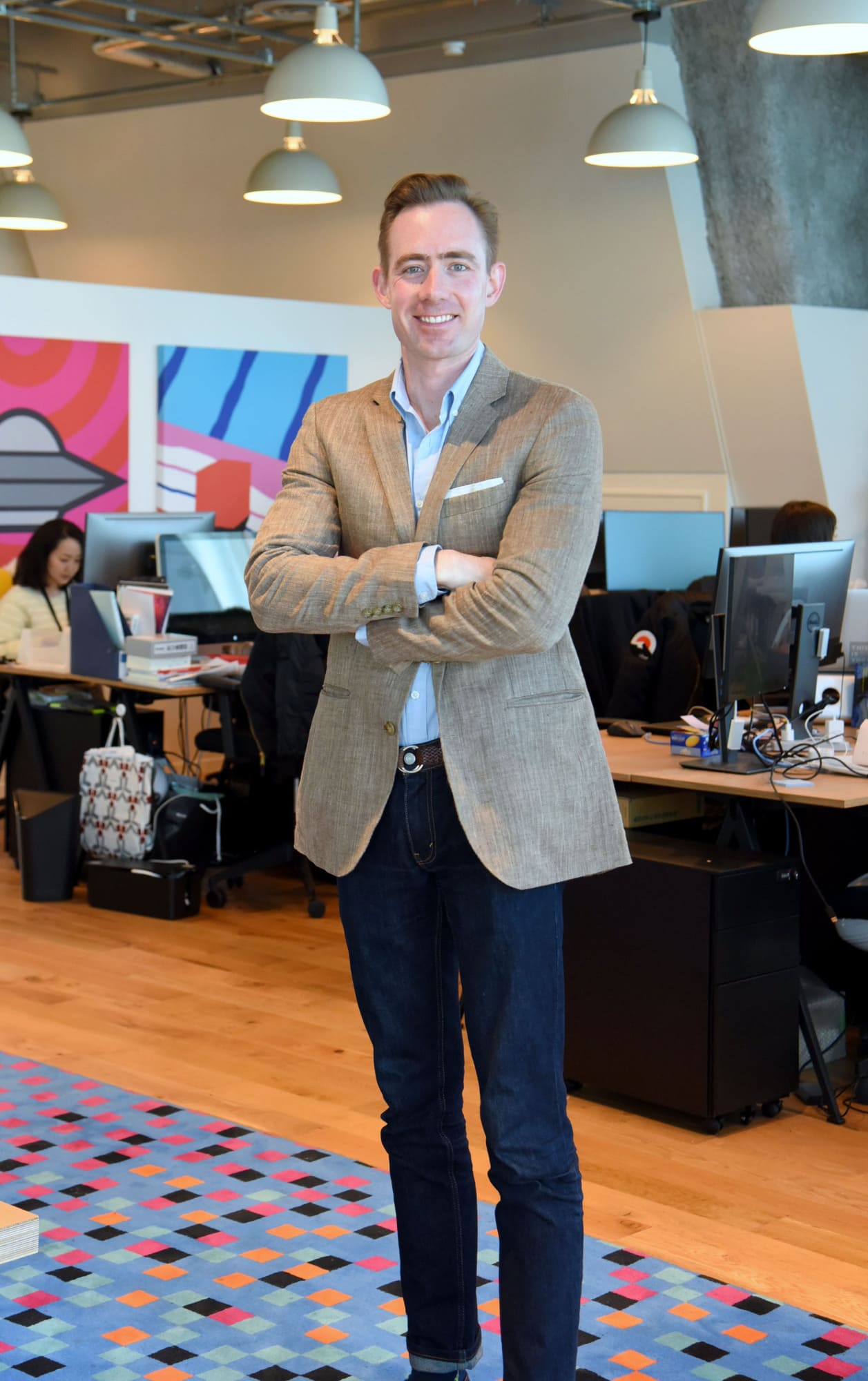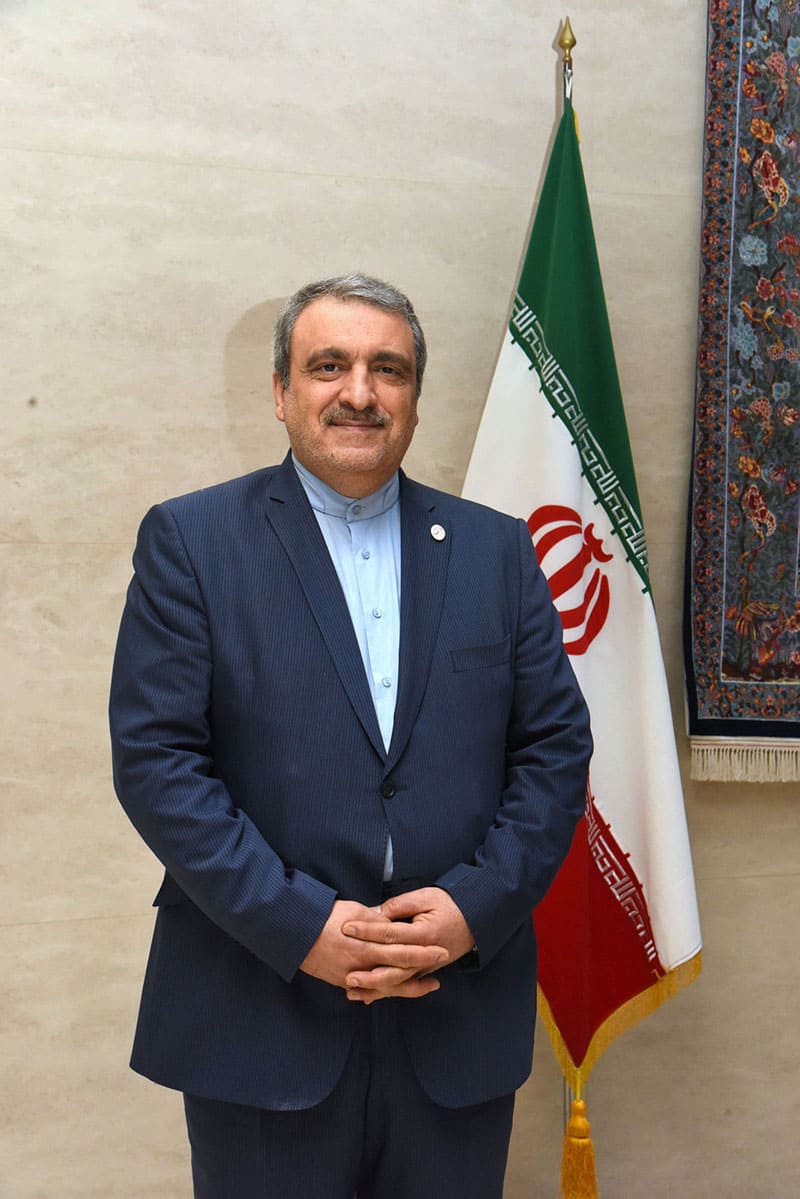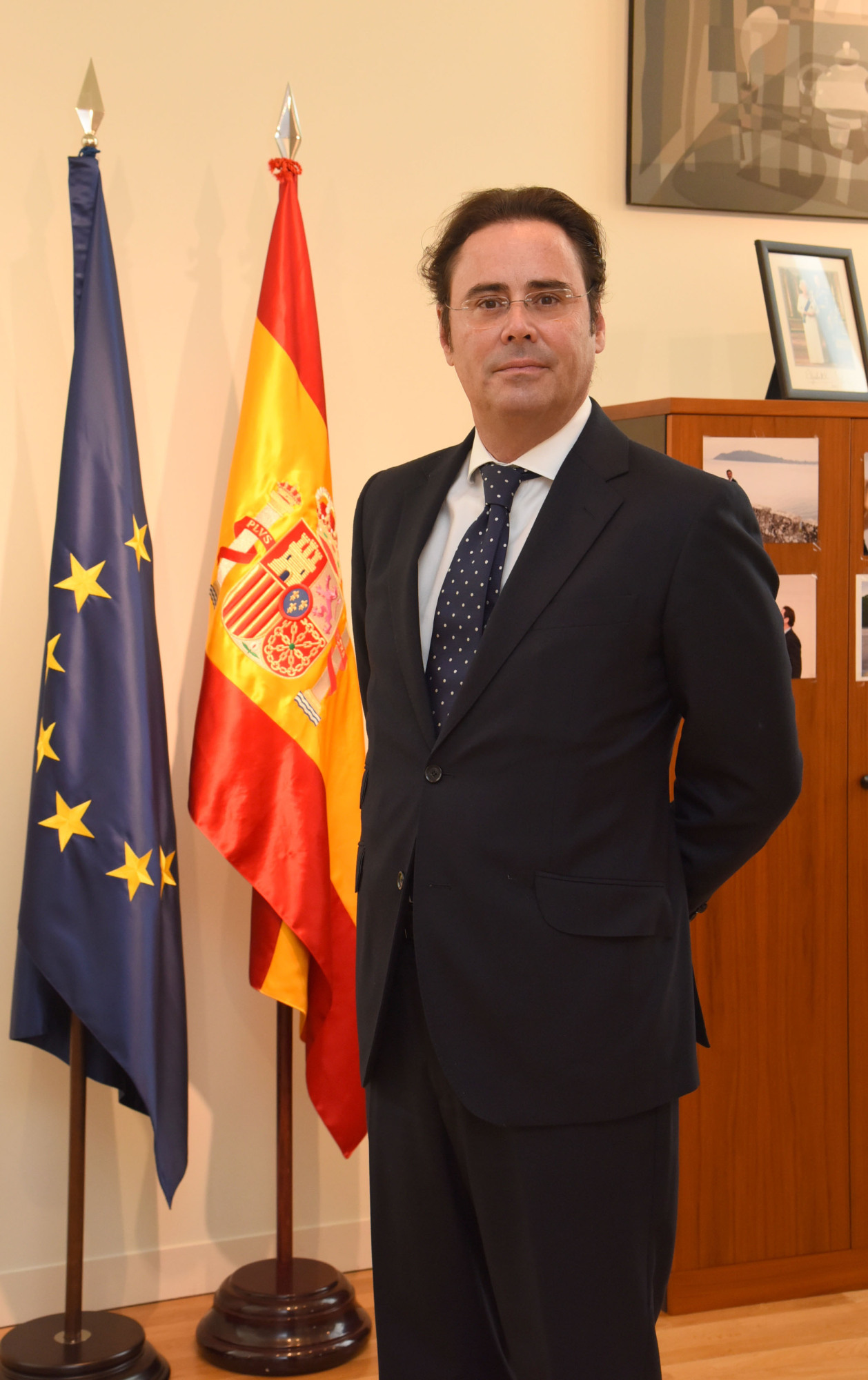
March 25, 2019
Diplomatic career offers a variety of opportunities
Jorge Toledo’s growing reputation in diplomacy leads him back to Japan
BY ROBERT GILHOOLY
CONTRIBUTING WRITER
- Name: Jorge Toledo Albinana
- Title: Ambassador of Spain (since December 2018)
- URL: http://www.exteriores.gob.es/embajadas/tokio/en/Pages/inicio.aspx
- DoB: Sept. 21, 1964
- Hometown: Madrid
- Years in Japan: 4.5
Jorge Toledo has a novel piece of advice to offer any foreigner coming to Japan — learn your gestures.
Spain’s new ambassador to Japan recalled how during his first posting here in the mid-1990s, he was often confronted with “lost in gesticulation” moments, such as the time he was driving through Tokyo and tried to get a motionless taxi in front of him to drive on through a green light.
The lights had changed, but the taxi still didn’t move, he explained, and after waiting a couple of minutes Toledo lightly honked his horn and made a typical European gesture — hands moving in a shooing fashion, a polite rendition of, “Sometime today, if you don’t mind.”
“I was surprised when the taxi driver got out, walked to the back of his car and opened the trunk,” said Toledo, 54, who became the ambassador here last December. “I quickly discovered that gestures common in Europe mean nothing here.”
Toledo also quickly discovered he found such cultural differences alluring, adding to a fast-growing fascination with Japan that stayed with him long after he left the country.
“In 1999 when I left Japan, I told myself I want to come back, and I want to come back as ambassador,” he said. “And here I am.”
It is this acute sense of determination that Toledo said best sums up his character. Raised in Madrid and Zaragoza, Spain, but born in Germany, Toledo’s earliest interest in the diplomatic services came when he was 11 years old, influenced, in part, by other family members who were diplomats.
Fast forward a decade and after graduating with a law degree from the University of Zaragoza in 1987, he took just one year to get into the diplomatic services — a process that normally takes three to four years.
“I had family who had been diplomats, like my great grandfather and my uncle who also was my godfather,” commented Toledo, whose first position was as director for economic relations for Latin America at Spain’s Ministry of Foreign Affairs and Cooperation, before being appointed technical adviser at the cabinet of the ministry in 1989.
“But I think my determination was key. I am a bit competitive, but not with others, only myself. If I have a motto in life, that would be it — if you have a goal, work hard to attain it.”
If Toledo had been a soccer player, he would have scored plenty of goals himself.
In 1991, and still only 27, he was sent to New Delhi as economic and commercial counselor at Spain’s embassy in India, and four years later he started his first stint in Japan, as political and press counselor at the embassy in Tokyo.
On his return to his homeland in 1999 he began a string of positions relating to Spain-European Union relations, and a growing reputation eventually landed him the appointment of director of the cabinet of the secretary of state for the EU in 2005.
Despite picking up numerous awards and decorations during the course of his diplomatic career — including Spain’s Grand Cross of the Civil Merit; Japan’s Order of the Sacred Treasure, Gold Rays; and France’s Legion of Honour, Chevalier rank — it was his work with the EU that Toledo said has given him the greatest satisfaction during his 32-year career.
“I have worked on European Union issues during the worst crises of the EU — the refugee crisis, the euro crisis, Brexit… The fact that the EU has survived all those crises and I was there and able to contribute makes me feel extremely proud.”
Japan, however, was often on his mind, and when the opportunity to return — as ambassador — presented itself, fate seemed to have come knocking.
“I had such a good time in 1995 and I loved the experience here so much,” he said. “Sometimes you idealize a place that you have been to and when you go back there it’s not the same. But I haven’t been disappointed at all. It’s as good, if not even better, than it was.”
In fact, the only surprise for Toledo was that, despite all Japan’s economic and social woes in the intervening years, little had changed.
“They talk of the lost two decades, but I don’t think it’s actually true,” he said. “It’s true that the 1990s and early 2000s were not as impressive in terms of economic development (compared with the post-war growth years). But coming as I was from India, which was less developed than it is now, Japan didn’t strike me as being a country in crisis at all.”
Rather, it seemed Japan had joined other developed countries that have reached a “new norm” of growth, he noted. “Where Japan is now is actually the normal place to be for a very developed country. … Now, you can see a lot of more sustainable growth going on, which was not the case in the ’90s. The 2020 Olympics is one thing that’s certainly having an effect.”
So, too, he hopes with Japan’s recent free trade agreement with the EU, which went into force on Feb. 1.
“Whereas in some parts of the world there are protectionist trends, Japan, like Spain and the EU, is a strong believer in free trade,” Toledo said. “I really think we are doing the right thing because this will provide a new source of growth for two of the most developed and largest markets in the world.”
Numerous roles held in global relations
Jorge Toledo began his career in the diplomatic services at the age of 24, passing the Spanish foreign service diplomatic school entry exams on his first attempt in 1988. Born in Ludwigshafen am Rhein, Germany, while his father was training to be a surgeon, he has held numerous overseas positions, including those in India and Senegal, where he was ambassador from 2008 to 2011, after which he landed in the prime minister’s office in Madrid in 2012 as director of the Department of European Affairs and G20. In 2016 he was appointed secretary of state for the EU. This is Toledo’s second assignment in Tokyo, where he is joined by his wife Marta. He has two children, the eldest of whom is also training for the diplomatic service. On his days off, he enjoys strolling around Tokyo and traveling outside the capital, which he says is a must for any foreign international visitor or resident.

